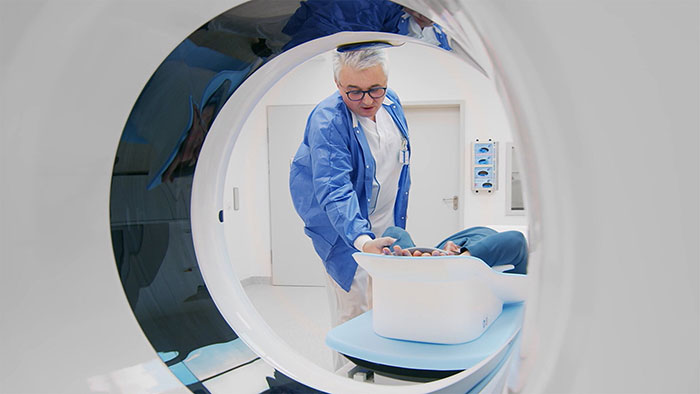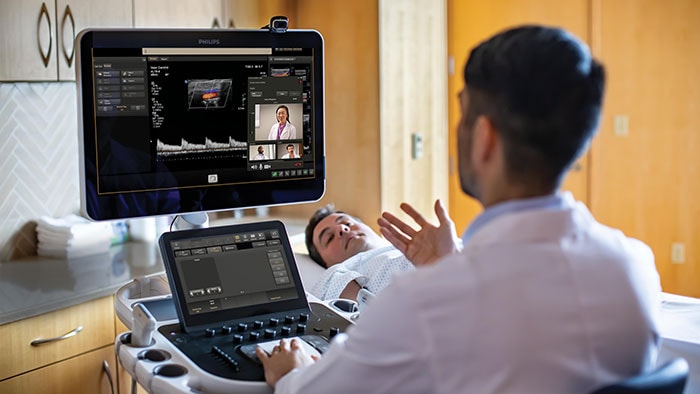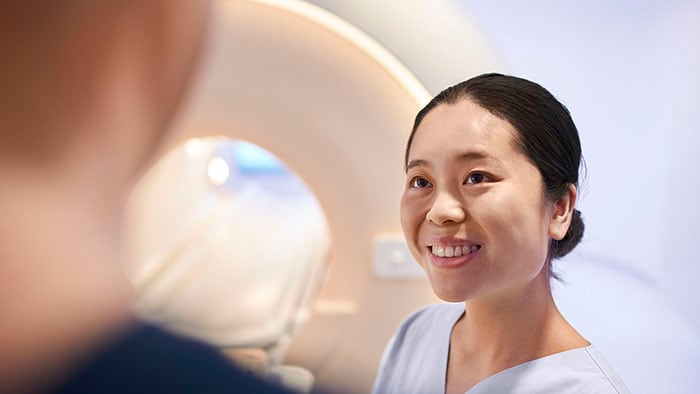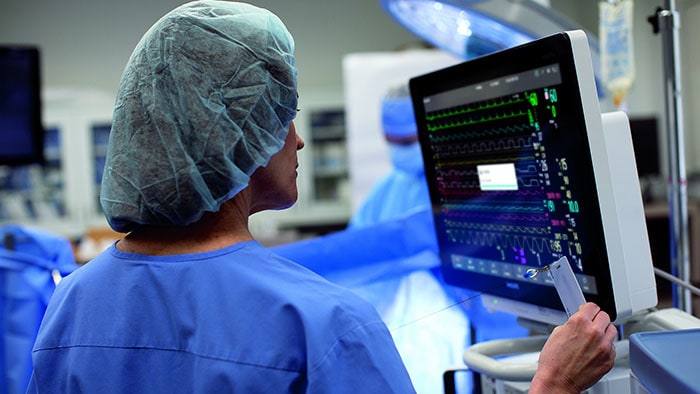Oct 19, 2020
Philips' Third Quarter Results 2020
Philips delivers Q3 sales of EUR 5.0 billion, with 10% comparable sales growth; income from continuing operations increases to EUR 341 million, Adjusted EBITA margin improves 300 basis points to 15.4%, and operating cash flow increases to EUR 770 million
Philips provides new financial targets for the 2021–2025 period
Third-quarter highlights Frans van Houten, CEO: “It is clear that the COVID-19 pandemic is far from over, and our teams remain fully focused on delivering against our triple duty of care: meeting critical customer needs, safeguarding the health and safety of our employees, and ensuring business continuity. I am pleased that, under challenging circumstances, we have been able to execute our plans and return to growth and improved profitability for the Group in the third quarter. Driven by the successful conversion of the Connected Care order book for patient monitors and ventilators, and a robust rebound of demand for our Personal Health portfolio, Philips recorded a strong 10% comparable sales growth and delivered an Adjusted EBITA margin improvement of 300 basis points to 15.4%. The Connected Care businesses delivered a very strong 42% comparable sales growth, and our Personal Health businesses delivered a healthy 6% comparable sales growth. I am encouraged by the performance improvement of our Diagnosis & Treatment businesses to a low-single-digit comparable sales decline from a high-single-digit decline in the previous quarter. In August, we provided the update that Philips’ April 2020 hospital ventilator contract with the Department of Health and Human Services (HHS) had been unexpectedly partially terminated. As a result, we recorded a comparable order intake decline for the Group of 18%. Excluding this partial termination, comparable order intake grew 3%, further building on the solid growth in the previous quarters. The work we are doing to support healthcare providers and medical staff with the provision of both COVID-19 and regular care remains a top priority for all of us at Philips. In close collaboration with our suppliers and partners, we have steeply ramped up the production volumes of products and solutions to help diagnose, treat, monitor and manage COVID-19 patients. We introduced a new Rapid Equipment Deployment Kit for ICU ramp-ups, allowing hospital staff to quickly deploy patient monitoring capabilities when additional critical care capacity is needed. To enhance patient care and improve care provider productivity, Philips entered into 11 long-term strategic partnerships with hospitals in the US, Europe and Asia. We announced a new multi-year partnership with Tampa General Hospital, one of the largest hospitals in the US, to replace all of its patient monitors and upgrade key imaging technologies in the catheterization laboratories and interventional radiology rooms. We will also provide this hospital with unique workflow solutions and operational performance management services. Looking ahead, we continue to see uncertainty and volatility related to the impact of COVID-19 across the world, but our order book remains solid. For the full year 2020, we continue to expect to deliver modest comparable sales growth, with an Adjusted EBITA margin of around the level of last year.”
Business segment performance The Diagnosis & Treatment businesses recorded a 3% comparable sales decline, compared to a 9% sales decline in Q2 2020. The postponement of installations and gradual recovery of elective procedures resulted in a low-single-digit comparable sales decline in Diagnostic Imaging and Image-Guided Therapy and a double-digit decline in Ultrasound. Comparable order intake showed a 5% decrease, compared to a 20% decrease in Q2 2020. The Adjusted EBITA margin decreased to 9.7%, mainly due to lower volumes and factory coverage, as well as mix changes. Comparable sales in the Connected Care businesses increased 42%, with double-digit growth in Monitoring & Analytics and Sleep & Respiratory Care. Excluding the partial termination of the ventilator contract with HHS, comparable order intake showed a double-digit increase, with strong growth across all businesses. The Adjusted EBITA margin increased to 27.1%, driven by higher volumes and operating leverage. The Personal Health businesses delivered a comparable sales increase of 6%, driven by high-single-digit growth in Personal Care and Domestic Appliances. The Adjusted EBITA margin amounted to 14.5%, which includes an adverse currency impact. Philips’ ongoing focus on innovation and partnerships resulted in the following key developments in the quarter:
Cost savings In the third quarter, procurement savings amounted to EUR 62 million. Overhead and other productivity programs delivered savings of EUR 58 million. As a result, Philips is on track to deliver over EUR 400 million productivity savings for 2020 and exceed EUR 1.8 billion productivity savings for the Group for the 2017-2020 period.
Philips provides new financial targets for the 2021–2025 period At the company’s Capital Markets Day with investors and financial analysts on November 6, 2020, Philips will provide further details of its strategic plan and performance trajectory for the 2021–2025 period. “We are excited to continue our journey to create further value by improving growth and profitability, while recognizing that we are in very uncertain times, and with the assumption that the world economy will return to growth next year,” said Frans van Houten. “The new targets are underpinned by our strategic imperatives to further improve customer and operational excellence, boost growth in our core businesses through geographical expansion and more customer partnerships, and win with innovative solutions along the health continuum. Our strategy to transform care along the health continuum – from healthy living and prevention to diagnosis and treatment, telehealth and home care – strongly resonates with customers and has been further validated during the COVID-19 pandemic.” Philips’ targets for accelerated growth, higher profitability and improved cash flow for the 2021–2025 period are [1]: *) On August 31, 2020 Philips announced that its April 2020 ventilator supply contract with the US Department of Health and Human Services (HHS) had been partially terminated. [1] The new targets exclude the Domestic Appliances business. As announced in January 2020, the Domestic Appliances business is being separated from Philips, a process that is expected to be completed in the third quarter of 2021. [2] The Diagnosis & Treatment business segment is expected to reach 15-17% Adjusted EBITA margin by 2025, the Connected Care segment is expected to reach 17-19%, and the Personal Health business segment is expected to reach 19-20%.
Report Third Quarter Results 2020 - Report Presentation Third Quarter Results 2020 - Results Presentation Conference call and audio webcast A conference call with Frans van Houten, CEO, and Abhijit Bhattacharya, CFO, to discuss the results will start at 10:00AM CET, October 19, 2020. A live audio webcast of the conference call will be available through the link below. Q3 2020 – Third quarter results conference call audio webcast More information about Frans van Houten and Abhijit Bhattacharya Click here for Mr. van Houten's CV and images Click here for Mr. Bhattacharya's CV and images
Visit our interactive results hub for more on our financial and sustainability performance over the past quarter, including the latest version of our dynamic Lives Improved world map.
About Royal Philips
Royal Philips (NYSE: PHG, AEX: PHIA) is a leading health technology company focused on improving people's health and well-being, and enabling better outcomes across the health continuum – from healthy living and prevention, to diagnosis, treatment and home care. Philips leverages advanced technology and deep clinical and consumer insights to deliver integrated solutions. Headquartered in the Netherlands, the company is a leader in diagnostic imaging, image-guided therapy, patient monitoring and health informatics, as well as in consumer health and home care. Philips generated 2019 sales of EUR 19.5 billion and employs approximately 81,000 employees with sales and services in more than 100 countries. News about Philips can be found at www.philips.com/newscenter.
Forward-looking statements and other important information
Forward-looking statements These factors include but are not limited to: changes in industry or market circumstances; economic and political developments; market and supply chain disruptions due to the COVID-19 outbreak; Philips’ increasing focus on health technology; the realization of Philips’ growth ambitions and results in growth geographies; successful completion of divestments such as the divestment of our Domestic Appliances businesses; lack of control over certain joint ventures; integration of acquisitions; securing and maintaining Philips’ intellectual property rights and unauthorized use of third-party intellectual property rights; compliance with quality standards, product safety laws and good manufacturing practices; exposure to IT security breaches, IT disruptions, system changes or failures; supply chain management; ability to create new products and solutions; attracting and retaining personnel; financial impacts from Brexit; compliance with regulatory regimes, including data privacy requirements; governmental investigations and legal proceedings with regard to possible anticompetitive market practices and other matters; business conduct rules and regulations; treasury risks and other financial risks; tax risks; costs of defined-benefit pension plans and other post-retirement plans; reliability of internal controls, financial reporting and management process. As a result, Philips’ actual future results may differ materially from the plans, goals and expectations set forth in such forward-looking statements. For a discussion of factors that could cause future results to differ from such forward-looking statements, see also the Risk management chapter included in the Annual Report 2019. Third-party market share data Statements regarding market share, including those regarding Philips’ competitive position, contained in this document are based on outside sources such as research institutes, industry and dealer panels in combination with management estimates. Where information is not yet available to Philips, those statements may also be based on estimates and projections prepared by outside sources or management. Rankings are based on sales unless otherwise stated. Use of non-IFRS information In presenting and discussing the Philips Group’s financial position, operating results and cash flows, management uses certain non-IFRS financial measures. These non-IFRS financial measures should not be viewed in isolation as alternatives to the equivalent IFRS measure and should be used in conjunction with the most directly comparable IFRS measures. Non-IFRS financial measures do not have standardized meaning under IFRS and therefore may not be comparable to similar measures presented by other issuers. A reconciliation of these non-IFRS measures to the most directly comparable IFRS measures is contained in this document. Further information on non-IFRS measures can be found in the Annual Report 2019. Use of fair value information In presenting the Philips Group’s financial position, fair values are used for the measurement of various items in accordance with the applicable accounting standards. These fair values are based on market prices, where available, and are obtained from sources that are deemed to be reliable. Readers are cautioned that these values are subject to changes over time and are only valid at the balance sheet date. When quoted prices or observable market data are not readily available, fair values are estimated using appropriate valuation models and unobservable inputs. Such fair value estimates require management to make significant assumptions with respect to future developments, which are inherently uncertain and may therefore deviate from actual developments. Critical assumptions used are disclosed in the Annual Report 2019. In certain cases independent valuations are obtained to support management’s determination of fair values. Presentation All amounts are in millions of euros unless otherwise stated. Due to rounding, amounts may not add up precisely to totals provided. All reported data is unaudited. Financial reporting is in accordance with the significant accounting policies as stated in the Annual Report 2019. Certain comparative-period amounts have been reclassified to conform to the current-year presentation. Effective Q1 2020, Philips has simplified its order intake policy by aligning horizons for all modalities to 18 months to revenue, compared to previously used delivery horizons of 6 months for Ultrasound, 12 months for Connected Care and 15 months for Diagnosis & Treatment. At the same time, Philips has aligned order intake for software contracts to the same 18 months to revenue horizon, meaning that only the next 18 months conversion to revenue under the contract is recognized, compared to the full contract values recognized previously. This change eliminates major variances in order intake growth and better reflects expected revenue in the short term from order intake booked in the reporting period. Prior-year comparable order intake amounts have been restated accordingly. This realignment has not resulted in any material additional order intake recognition. Per share and weighted average share calculations have been adjusted retrospectively for all periods presented to reflect the issuance of shares for the share dividend in respect of 2019. Market Abuse Regulation This press release contains inside information within the meaning of Article 7(1) of the EU Market Abuse Regulation.
This document and the related oral presentation, including responses to questions following the presentation, contain certain forward-looking statements with respect to the financial condition, results of operations and business of Philips and certain of the plans and objectives of Philips with respect to these items. Examples of forward-looking statements include: statements made about the strategy; estimates of sales growth; future Adjusted EBITA; future restructuring, acquisition-related and other costs; future developments in Philips’ organic business; and the completion of acquisitions and divestments. By their nature, these statements involve risk and uncertainty because they relate to future events and circumstances and there are many factors that could cause actual results and developments to differ materially from those expressed or implied by these statements.
Topics
Contacts

Ben Zwirs
Philips Global Press Office Tel: +31 6 1521 3446
You are about to visit a Philips global content page
Continue
Martijn van der Starre
Philips Global Press Office Tel: +31 6 2847 4617
You are about to visit a Philips global content page
ContinueBusiness Highlights Q3 2020
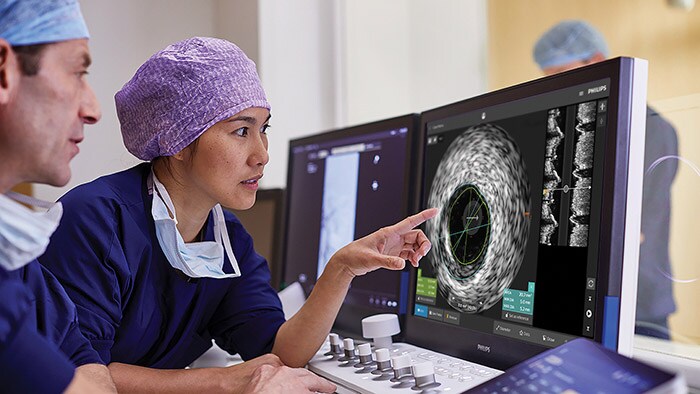
Philips launched major extensions to its industry-leading Azurion image-guided therapy platform, comprising a new range of configurations – covering more price segments – to innovate procedures in a broad range of therapeutic areas, and further integration between imaging and diagnostic devices.
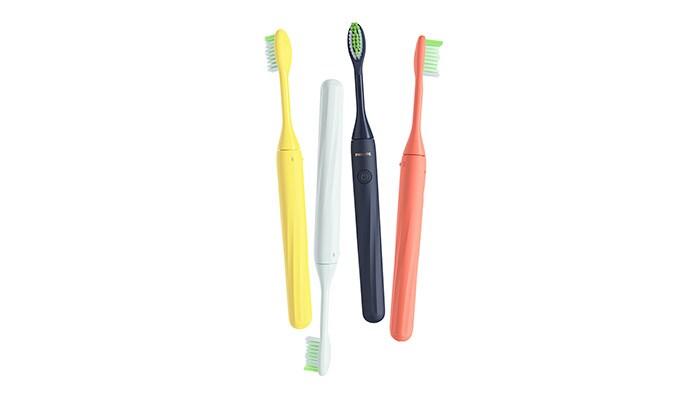
Broadening its leading portfolio of power toothbrushes, the company launched the Philips One by Sonicare. An entry-level proposition to expand into new consumer segments, Philips One is a battery-operated power toothbrush developed as a step up from manual brushing. Users of this toothbrush can opt into a subscription service for brush head and battery replacements.
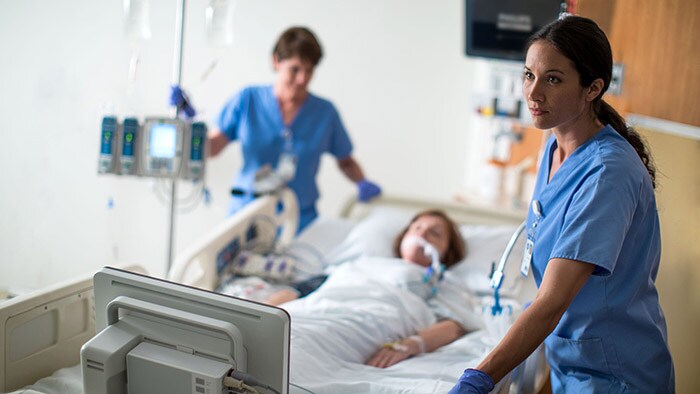
Philips launches Rapid Equipment Deployment Kit to COVID-19 response.
Press releases
Get our press releases by e-mail
You are about to visit a Philips global content page
Continue




